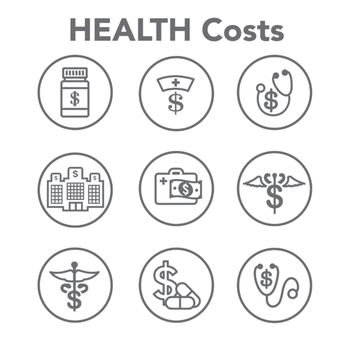
Employers
Latest News

Latest Videos

More News

Amid the coronavirus disease 2019 pandemic, the use of telemedicine has expanded among employers and healthcare providers to ensure effective coverage without risking potential exposure.

Centivo has launched a new health plan solution, aimed at lowering costs for employees; trial results show dead bacteria may be effective in treating IBS; continuous glucose monitoring systems are now being used in hospitalized patients with diabetes and coronavirus disease 2019 (COVID-19).

As part of the National Alliance of Healthcare Purchaser Coalitions Employer Town Hall series on the coronavirus disease 2019 (COVID-19), speakers discussed how employers are helping employees and their families to maintain mental health and wellness, with additional input on those managing existing mental health conditions.

In a study released Monday by the Integrated Benefits Institute, researchers found that due to lost time from work caused by the novel coronavirus disease 2019 (COVID-19), employee benefits for absent workers could cost employers more than $23 billion.

V-BID X for Employers: A Framework Designed to Promote Employee Access to High-Value Drugs, Services
Employers are showing great interest in value-based insurance design, as they recognize their role in shaping how their employees’ share of healthcare costs can affect what care they seek.

In a survey released this week, half of US small business owners said they cannot afford to pay employees for a full month amid the economic lockdown caused by coronavirus disease 2019, with 1 in 5 also noting their inability to afford wages for a week or less.

The coronavirus disease 2019 (COVID-19) pandemic has led to healthcare cost increases of as much as 7% for employers, based on recent study results, stressing the essential need for organizations to have a plan that supports employees and potential revenue loss.










During the coronavirus disease 2019 (COVID-19) pandemic, Innovaccer’s free to use COVID-19 Management System promotes the ability for patients to implement self-assessments to determine severity risk, which could prove crucial in at-risk, under resourced populations.

The president signed into law Wednesday the temporary Family First Coronavirus Response Act, which provides short-term paid sick leave benefits and longer-term paid family leave for some workers affected by the virus. However, it is not universal and provides for various exclusions.

In a webinar moderated by Thomas Parry, PhD, president of the Integrated Benefits Institute, an employer panel discussed value, application, and barriers to strategies involving the integration of employee needs and interests into benefit programs.

Dr Jeremy Whalen Cites Patient Safety, Total Cost of Care as Key Policy Goals for Prime Therapeutics
Patient safety is paramount when deciding how to roll out a new program or even if a program should be developed or not, said Jeremy Whalen, PharmD, BCOP, specialty clinical program director for oncology at Prime Therapeutics.

Amid the COVID-19 pandemic, patients, as well as their physicians, have been put at risk while seeking or providing other healthcare. While several barriers to care have inhibited telehealth in the past, recent actions by CMS, HHS, and other governing bodies have sought to expand its availability nationwide. NYU Langone Health's telehealth service Virtual Urgent Care connects members with clinicians via phone or tablet to provide care without potential coronavirus exposure.

Co-pay accumulator adjustment programs can have different effects for individuals with varying health plan types or income levels, explained Bruce Sherman, MD, chief medical officer of the National Alliance of Healthcare Purchaser Coalitions.

Ongoing studies are aiming to determine how co-pay accumulator adjustment programs affect individuals’ medication adherence and persistence, with the hope that the results will inform employers on more equitable benefits strategies, according to Bruce Sherman, MD, chief medical officer of the National Alliance of Healthcare Purchaser Coalitions.

On this episode of Managed Care Cast, we speak with April Todd, senior vice president, CORE and Explorations for CAQH. We discuss CAQH CORE’s recent approval of a 2-day rule for health plans in requesting additional supporting information from providers and making final determinations on prior authorization requests.

In nonprofit hospitals within states that expanded Medicaid, significant decreases in uncompensated care was reported, with additional increases in unreimbursed Medicaid expenses indicating that Medicaid expansion had no substantial effect on community benefit spending.














